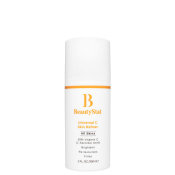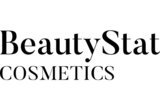When cosmetic chemist Ron Robinson first discovered Facebook back in the early 2000s, he had no idea that the rise of social media would change his job—and his life. As a chemist and product formulator for big brands like Clinique, he was no stranger to homing in on the needs of customers. But as social media and blogs started to change the way that people interacted and shared their thoughts online, he knew there was an opportunity to build a digital community around his biggest interest: skincare and beauty.
Fast forward to 2021, and his skincare brand BeautyStat is one of the buzziest names in the beauty space. We sat down with Ron to chat about his journey from cosmetic chemist to digital community builder, and to launching his own line of cutting-edge, science-backed skincare.
How did you get your start in the beauty industry?
I totally fell into this industry. 31 years ago, I started as a cosmetic chemist for the Clinique division of the Estée Lauder Companies. But prior to that, I went to med school. My parents moved to New York City from the Caribbean, and they wanted their sons—I’m one of three brothers—to be either doctors or lawyers. So I went to med school but hated it. Dropped out.
I moved back in with my parents, and then I sent out resumes. I had a chemistry degree, and Estée Lauder called me in for an interview, and I was hired on the spot. They loved my interest in beauty and my background in science, and I had no idea that this whole world of science and chemistry, and creating and formulating products, even existed. And that was how I fell into the industry. And it’s been a crazy ride since.
And how did BeautyStat come to be?
I had about 20+ years developing products for brands, either as a chemist or a product developer. This was a time when there was the rise of Facebook and social media. I thought it was really interesting that people were forming these communities and sharing content, and exchanging information. I thought there should be a place for consumers to do that around beauty. So I formed BeautyStat, which turned out to be a very popular beauty blog and social community, all centered around beauty.
So BeautyStat didn’t start out as a skincare brand?
BeautyStat, in its original form, was not a skincare brand—it was a blog and social media platform. We had a bunch of experts reviewing literally thousands of products to help consumers navigate the whole beauty space. This was 11 years ago. I ended up leaving my job working with the big brands to launch BeautyStat.
What inspired you to launch your first product?
After I launched BeautyStat, I was tapped as the go-to cosmetic chemist for all the beauty editors and news outlets. So I was quoted and interviewed about products, ingredients, trends in beauty, etc. And one of the questions I was always asked was about vitamin C. Why is it unstable? Why does it oxidize? Why does it turn brown? What’s the difference between pure vitamin C and derivatives of vitamin C? And that got me thinking, “What if I found a way to stabilize pure vitamin C?"
I got together with one of my chemist colleagues from Estée Lauder, and we started tinkering around with ways to stabilize vitamin C. After several years of formulating and testing, we came up with a great product that was rock stable and contained 20% pure L-ascorbic acid, which is vitamin C in its purest form. We got three patents on the ability to stabilize it.
So this is the Universal C Skin Refiner?
Yes, exactly. It was about five years in the making. And the last step was to put this product to an independent clinical test to say, “Okay, it’s stable, but does it deliver results? Does it perform?” So we sent it out for independent testing.
Several weeks later we got the results back, and I was blown away. The results showed significant improvement in almost every skin parameter from fine lines, wrinkles, evening out skin tone and hyperpigmentation, firming and tightening the skin, even diminishing the look of pores. Those results prompted me to launch the brand BeautyStat Cosmetics a year and a half ago.
And it all started with vitamin C. What’s the vision for the brand?
We have this lofty goal of continuing that task of solving big needs—big consumer skincare needs. So we knew stabilizing pure vitamin C and offering consumers a great vitamin C treatment was a big need. And now we’re continuing that mission in other areas of skincare. So we’ve launched a couple of moisturizing barrier repair products (Universal Pro-Bio Moisture Boost Cream and Universal Moisture Essence). And we took the vitamin C technology to formulate an eye cream, plus other proprietary ingredients as well, like hemp oil and caffeine and magnolia.

As a product developer, how do you decide which products to formulate?
It always comes back to the consumer and the need. Because I’m a chemist, data and insights and research are how I’m wired. If I’m going to spend the time mixing ingredients together and formulating a product, it has to be for a good reason. And for me, it’s always been about the consumer, and what is the consumer looking for. And that’s what started this research into vitamin C—there was a clear need. They were asking for it.
What’s next for BeautyStat?
We’re excited about some of the new innovations we have coming later this year and the next that tackle other big needs in the marketplace. We have a breakthrough coming in the cleansing category—so stay tuned for that.
Shop BeautyStat’s collection of high-performance skincare.
Images courtesy of BeautyStat
Featured Products
You Might Also Like
-

Stories
Go Behind the Scenes at the Beautylish Yacht Club
- 12
-
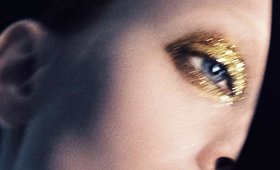
How-to
Tom Ford’s Extrême Collection is a Glitter Lover’s Dream
- 5
-
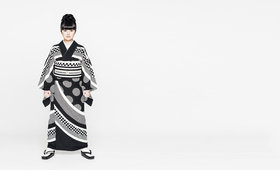
Behind the Brand
Takahashi Hiroko / Q+A
- 16
-
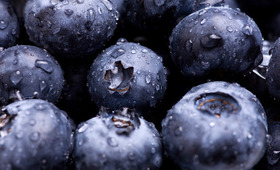
Skincare
DIY Blueberry Skin Care Recipes
- 719
-
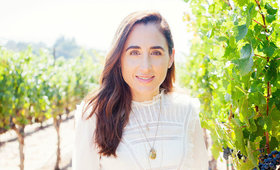
Behind the Brand
The Founder of Vintner’s Daughter on Motherhood, Charity, and Gratitude
- 3
-

Bath and Body
The Best Body-Firming Creams
- 174





